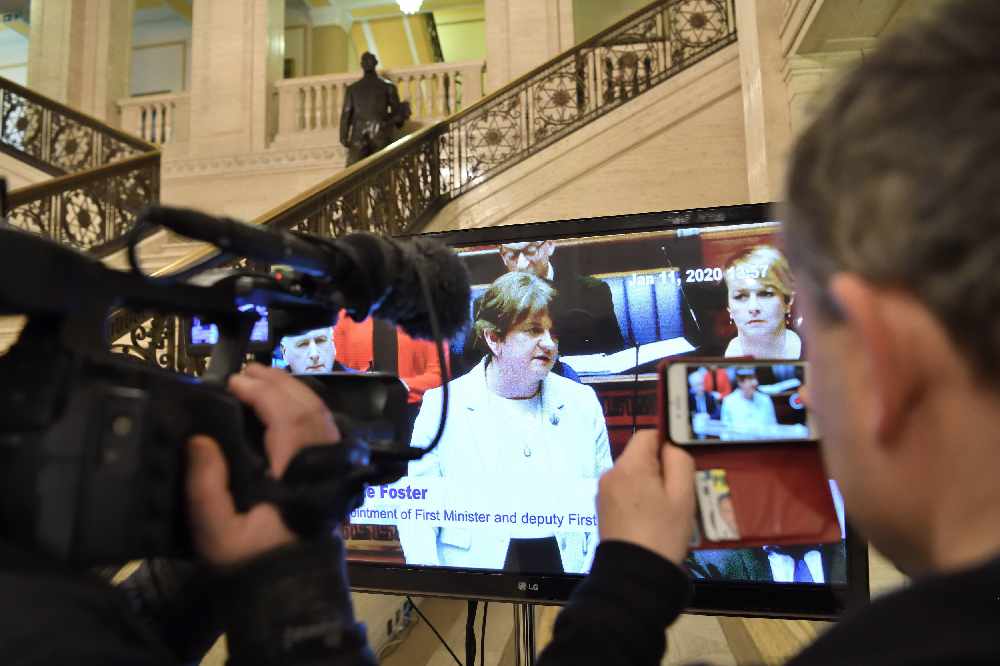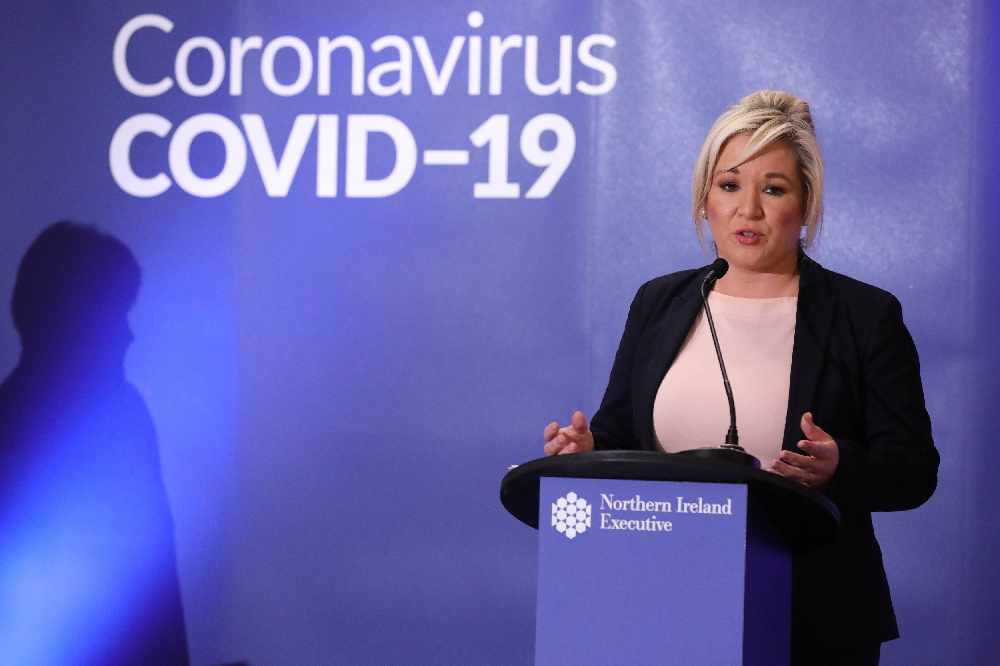
By David Young, PA
Stormont’s deputy first minister has agreed to progress a compensation scheme for Troubles victims after a judge ruled that an ongoing delay was unlawful.
The move by Michelle O’Neill came after she was highly criticised by a High Court judge for refusing comply with a legislative requirement to set up the scheme to gain political leverage over the UK Government.
The joint legal challenge against the delay was brought by Jennifer McNern, who lost both legs in a Troubles bombing in 1972, and Brian Turley, one of the “hooded men” who were arrested and interrogated by the British Army in 1971.
The payment scheme is in limbo due to a dispute between Sinn Fein and the Government over eligibility criteria that are set to exclude anyone convicted of inflicting serious harm during the Troubles.
It was due to open for applications at the end of May but little progress has been made due to a failure by the Executive Office (TEO) which is shared by Ms O’Neill and First Minister Arlene Foster, to nominate a Stormont department to take responsibility for it.
Sinn Fein claims the scheme, which was legislated for at Westminster, would be discriminatory and would potentially exclude thousands of republicans with past convictions.
In a separate row, Sinn Fein and the DUP have jointly been at odds with the UK Government over who should pay for the scheme.
Initially, Ms O’Neill and Mrs Foster refused to progress with the scheme – Mrs Foster citing the funding issue and Ms O’Neill objecting on the twin grounds of funding and eligibility.

The judge said any argument to the contrary was “obtuse, absurd and irrational”.
However, Mrs Foster subsequently dropped her opposition and during the court hearing the judge was told the First Minister was now willing to designate a department immediately.
That left Ms O’Neill as the sole cause of the delay within TEO for nominating the department, as the agreement of both ministers is required for the joint office to act.
That point was made clear in a scathing judgment delivered in Belfast High Court by Justice McAlinden on Friday.
Noting that Ms O’Neill was the source of the blockage, he said TEO was under a “clear, unqualified and unconditional obligation” to designate a department.
The judge said any argument to the contrary was “obtuse, absurd and irrational”.
He dismissed as “nonsense” a TEO contention that the court should not involve itself in what it claimed was a political dispute.
The judge said TEO was deliberately stymieing the introduction of the scheme in a bid to pressure Northern Ireland Secretary Brandon Lewis to change the terms of the scheme.
“This is a truly shocking proposition,” he said.
“It demonstrates either wilful disregard for the rule of law or an abject ignorance of what the rule of law means in a democratic society.”
In response, Ms O’Neill said she had “no alternative” than to nominate a department.

Deputy First Minister Michelle O'Neill
But she insisted the scheme was devised by the UK Government and was “exclusionary, discriminatory and divisive”.
“Its policy intent was and remains to create a hierarchy of victims, and reinforce the British state narrative around the conflict,” she said.
“As joint head of Government I remain committed to delivering a scheme which is based on equality and open to everyone who was seriously physically and psychologically injured during the conflict.
“In light of the court ruling, therefore, I am left with no alternative other than to designate a department.
“However, that designation will require the Executive to work together to secure the additional funds from Westminster for the cost of the scheme and get further clarity on eligibility and applications.”
Ms O’Neill accused the UK Government of reneging on previous commitments to establish mechanisms to deal with the legacy of the Troubles and called for it and the Irish government to convene a summit to address the outstanding issues.
Giving her response, Mrs Foster criticised her Executive colleague.
"The refusal by the Deputy First Minister to designate the Department of Justice to process the pension lacked basic compassion," said Mrs Foster.
"Regardless of Sinn Fein’s view of the scheme eligibility, they should not have side-lined those who were eligible because perpetrators were not.
She added: "The Department of Justice will now be able to develop the systems to administer the Scheme. I have already spoken with the Government about ensuring the payments are made once the back-office infrastructure is in place."
Justice McAlinden had given TEO seven days to respond to the judgment.
Responding to the court victory, Ms McNern said: “I should never have had to take this case.
“I and other members of the WAVE Injured Group (support group for victims) have been campaigning for too many years and until recently on our own for recognition and acknowledgement for the forgotten victims and survivors of the Troubles.
“We need our politicians to act on this now and implement the scheme.”
Mr Turley said: “How do the Executive explain the profound unprofessionalism of their approach to victims?
“As a survivor of torture, I was left with long-term injuries as a result of the actions of the state.
“The delay in having to wait on my right to a pension can only be described as another form of torture.”
Mr Turley has also taken a case against Mr Lewis.
However, the judge found that the Secretary of State had fulfilled his obligations and regulations introduced by the Government had delivered the basis for an “effective” and “workable” scheme.


 Woman assaulted while jogging in West Belfast
Woman assaulted while jogging in West Belfast
 Leading loyalist Winston Irvine sentenced to 30 months for firearms offences
Leading loyalist Winston Irvine sentenced to 30 months for firearms offences
 Rescue operation to free 40 cows after lorry overturns on motorway
Rescue operation to free 40 cows after lorry overturns on motorway
 New date set for trial of former DUP leader Jeffrey Donaldson and wife
New date set for trial of former DUP leader Jeffrey Donaldson and wife